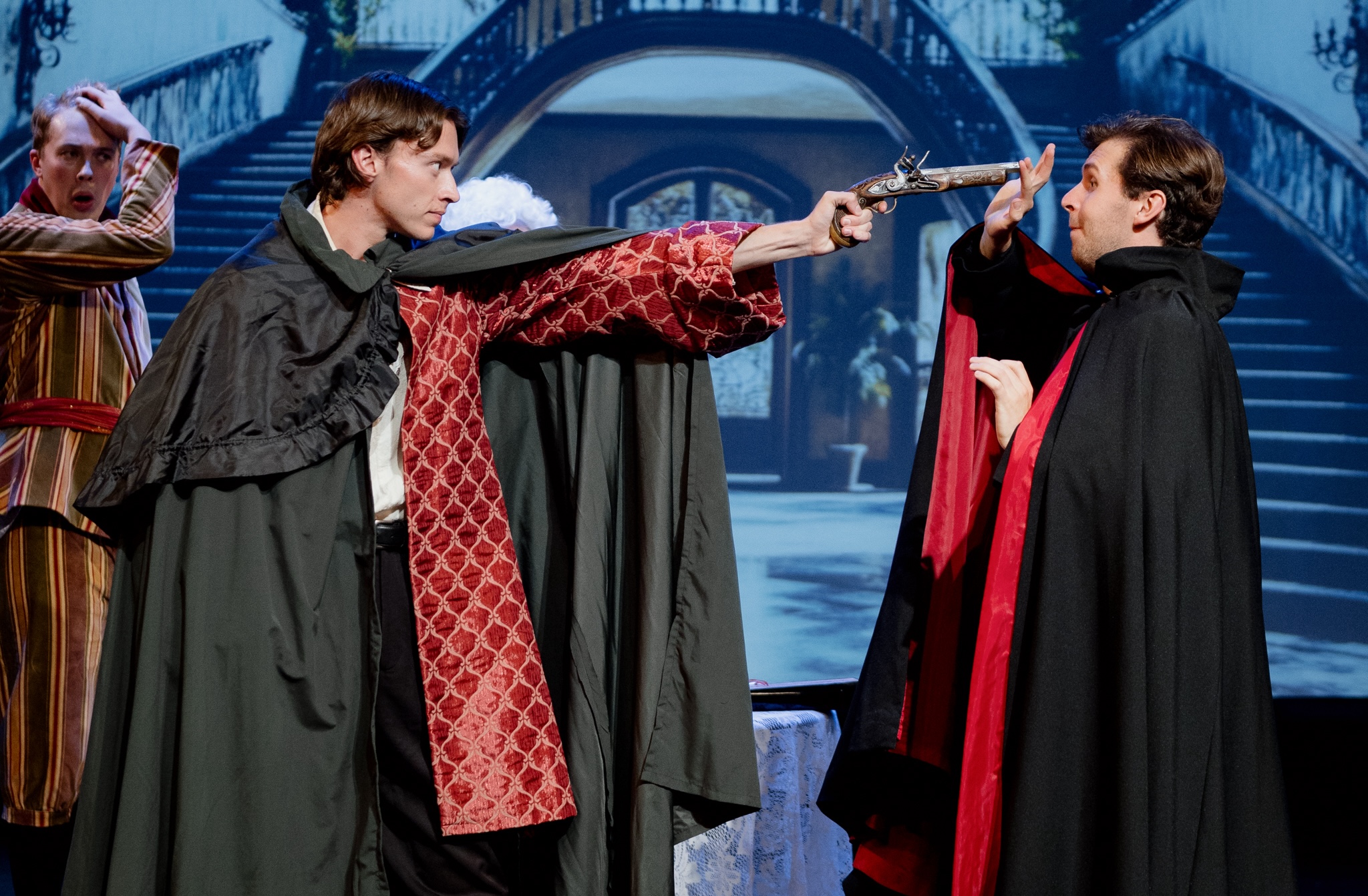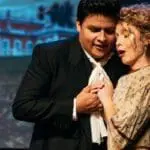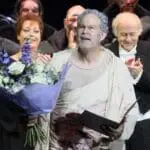The qualities of a good barber are as follows: creativity, experience, expertise, good communication skills, endurance, precision and knowing what to leave and what to cut. It just happens to be that the qualities of a good production of The Barber of Seville also fit these descriptives.
Highlands Opera Studio’s production of Rossini’s masterpiece took place with alternating casts on August 22, 24, 25 and 26, at the Northern Lights Performing Arts Pavilion in Haliburton, Ontario. I am a big fan of male choruses and was dismayed when I got wind that there would be none in this shortened version. It turns out I didn’t miss the throngs of officers, soldiers, and street-musicians – I enjoyed the simplicity of just using leads who carried all the action.
The opening night of Highlands Opera Studio’s Barber – unlike the fiasco of Rossini’s première in 1816 – was resoundingly successful. And what better way to set a mood of levity than to enter the theatre with a video of Bugs Bunny’s Rabbit of Seville playing onstage?
As Figaro, Danlie Rae Acebuque was a strong singer with excellent diction, a warm lower resonance, and a brilliant top end. He was also a gifted comedic actor whose nimble antics kept the audience in stitches; one couldn’t help but enjoy the show that he was clearly enjoying as well. Patricia Yates’ Count Almaviva was comedic gold as the drunken soldier, but she also shone as the romantic Count, combining grace of movement with a lush command of her middle range in “Ecco, ridente in Cielo.” Queen Hezumuryango was a delightfully spunky Rosina whose dynamic range and versatility made her “Una voce poco fa” a showstopper. As Don Basilio, Ricardo Ceballos showcased his rich bass voice and his effective understated comedic skills. Evan Lindberg portrayed both Fiorello and a police officer with great comedic flair while also giving the audience a chance to hear his velvety smooth bass voice.
There were two singers who appeared in all performances as the same characters. Nataliia Temnyk was a much put-upon Berta, and she tackled her humorous “Il vecchiotto cerca moglie” with flair and a final note that made the audience want to hear more of her gloriously strong voice. As Dr. Bartolo, Nicholas Murphy was nothing short of brilliant; he was an outstanding actor who cleverly played off the whirligig of activity around him. Despite singing every performance, his resonant voice never faltered, and his “A un dottor della mia sorte” exemplified Rossini’s use of patter for comedic effect.

Photo Credit: Brenden Friesen
Patricia Yates as Almaviva, Queen Hezumuryango as Rosina and Danlie Rae Acebuque as Figaro
The second cast had a lot to live up to, but they started out of the gate strong and produced another stunning night of opera buffa. Benjamin Wallace was a very funny Figaro, and his warm baritone voice is one which bodes well for future operas. His “Largo al Factotum” was a joyful display of agility and vocal strength which he sustained throughout his long role. Spencer VanDellen was an excellent actor and, as Count Amaviva, he was chameleon-like as he slipped in and out of his various disguises. His lyric sound was glorious and his accomplished vocal technique made the audience feel completely at ease as he tackled the wide range and extensive ornamentations required in his role. Lissy Meyerowitz was the perfect foil for VanDellen’s Count – she had a lush contralto tone and an intensity to her middle register. Her “Contro un cor” was as lovely to listen to as it was comedic to watch. Evan Lindberg’s Don Basilio sang a side-splitting version of “La calunnia è un venticello,” while Ricardo Ceballos’s onstage antics as a police officer made the audience laugh out loud.
Presiding over this comedic musical circus was conductor Gordon Gerrard. Under his baton, all of Rossini’s complex changes in tempo and dynamics were beautifully executed, and the group numbers were testament to his calm, unwavering and precise conducting. Both accompanists – Vladimir Soloviev and Stéphane Mayer – were brilliant in their own right, but when they combined forces to play the overture as a duet, the result was mind blowing.
This frenetic production was directed by Richard Margison, whose use of minimalistic sets with big screen projections made it easier for him to move his singers around in madcap ways. Simple props like large bouquets, green grapes, ladders and fans heightened the humour, and made the audiences roar with delight. It was clear that Margison and his cast were having a good laugh along with the audience, and I know Rossini – the master of operatic comedy – would have approved. Like a skilled barber, Margison knew how to creatively clip, style and make this popular opera shine once again.

Photo Credit: Brenden Friesen
Spencer VanDellen (Count) and Evan Lindberg (Basilio) in The Barber of Seville
Related Content ↘
Opera Canada depends on the generous contributions of its supporters to bring readers outstanding, in-depth coverage of opera in Canada and beyond. Please consider subscribing or donating today.















